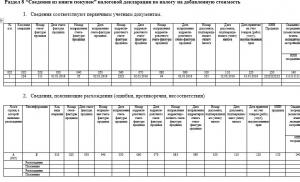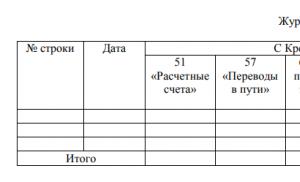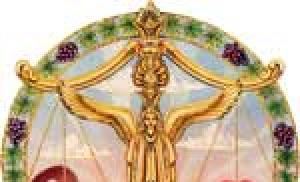What herbs to drink for expectoration. Cough herbs for children and adults - how to take, brew decoctions or infusions for rinsing and inhalation
Cough is one of the most annoying symptoms of any cold. It is difficult to get rid of it even after acute respiratory infections, and if complications appear in the form of bronchitis, tracheitis, especially pneumonia, it takes a lot of time and effort to eliminate the symptom. Medications help to get rid of the underlying disease.
But sometimes you have to resort to traditional medicine to help the body cope with a prolonged cough, when antibiotics become simply dangerous due to the long course of use.
Herbs and fees to relieve the symptom may also be recommended by doctors. Let's figure out which herbs thin sputum.
Any cough it's a reflex, with the help of which the bronchi and lungs are cleared of foreign objects and substances.
Therefore, a person coughs, choking, exhaling strongly and sharply through the mouth, with a cold, trying to get rid of accumulated sputum in the trachea or lungs, with many other diseases.
Unproductive, dry cough- one of the most dangerous, doctors often have to prescribe special drugs that suppress the cough reflex if the symptom is caused by tumors, swelling, or an allergic reaction.
Attention. Mucus in the bronchi is a normal reaction of the body. It helps to breathe, detains microorganisms, that is, it is produced and updated constantly. But with the inflammatory process, swelling, it becomes much larger, the composition, viscosity, color change, bacteria begin to multiply in it. The faster this substance is removed from the body, the greater the chance for a speedy recovery.
With a normal productive cough, when the result is sputum discharge, suppression of cough centers can become dangerous, since it is in sputum that many pathogens develop that can cause inflammatory processes, destructive organs of the respiratory system.
In this case, it is expectorants that help facilitate the “cleaning” of the respiratory tract, thinning the viscous secret and removing it from the bronchi, not allowing to descend into the lower sections and lungs.
What herbs have an expectorant effect
 For many centuries, medicinal herbs have been used to facilitate the removal of sputum, which have the ability to thin sputum and have an anti-inflammatory effect. Herbs that loosen phlegm:
For many centuries, medicinal herbs have been used to facilitate the removal of sputum, which have the ability to thin sputum and have an anti-inflammatory effect. Herbs that loosen phlegm:
- Liquorice root- in the old days it was called licorice. A universal remedy that enhances the effect of any drugs when coughing, it can be drunk with a decoction, simply chewed, used for inhalation. An anti-inflammatory agent that copes with microbes, is rich in vitamins, so that treatment started on time will help to avoid bronchitis that has dragged on for weeks.
- Coltsfoot- small nondescript flowers on a thin green stem appear in early spring along with the first flowers. No less unique plant that saves chronic bronchitis, tuberculosis, pneumonia, making life easier for asthmatics. Decoctions of freshly picked May flowers, leaves, dry raw materials are recommended to drink for both children and adults.
- Elecampane- the plant did not get its name in vain, nature endowed it with a powerful force capable of overcoming many diseases. The roots and rhizomes of elecampane are used for inhalation, in decoctions, infusions to combat inflammation, as an antimicrobial and expectorant.
- Chamomile- an excellent antiseptic and sputum thinning agent, helps to soothe irritation.
- Thyme.
- Oregano.
- Altey.
- Calendula.
- Sage.
- wild rosemary.
- Raspberry- young shoots and leaves are known not only as an antipyretic, but also as an anti-inflammatory, expectorant in decoctions.
- St. John's wort- relieves, soothes irritation, facilitates coughing.
Many herbs have an expectorant effect, so infusions and decoctions of them will be useful for bronchitis.
But each of the plants has contraindications., so before use, you need to consult a doctor, find out if you need to take medicines with herbs, which of them can harm in chronic diseases of the cardiovascular system, gastrointestinal tract.
Herbs for asthma
 Bronchial asthma causes a debilitating cough which brings almost no relief.
Bronchial asthma causes a debilitating cough which brings almost no relief.
To free the bronchi from accumulated mucus, special means are needed to facilitate breathing and relieve swelling.
The greatest efficiency was shownherbs for sputum discharge:
- oregano- a diaphoretic and facilitating production, thinning and excretion of mucus from the body, a decoction of it is pleasant, soothes, helps to fall asleep;
- oats- a decoction of cereal facilitates the removal of sputum, you can add honey, milk, aloe juice to it;
- rosemary decoction- has both expectorant and anti-allergic effect;
- elecampane- decoctions and inhalations from rhizomes come to the rescue in this disease, are not addictive, so you can drink the decoction throughout your life and to prevent attacks;
- ginger- freshly squeezed juice of one root with a pinch of salt relieves an attack and helps to cough productively.
Important. With this dangerous disease, any remedy should be discussed with a doctor, since against the background of an allergy, both a spasm and a life-threatening edema can develop.
Be sure to make sure that the plant is not among the allergens. Otherwise, it will be very difficult to predict the result.
best herbs for dry cough
To alleviate the condition with a dry cough, inhalations from some herbs can. After all, the main thing with him - get rid of mucus which irritates the respiratory tract.
Chamomile- soothe an irritated throat, help to form more mucus, that is, begin to remove harmful substances.
Coltsfoot- the vapors of this plant also help relieve inflammation, and also soften the inflamed mucous membranes.
For wet cough
 Having achieved normal sputum discharge, you need to continue to take decoctions and infusions from herbs or their fees.
Having achieved normal sputum discharge, you need to continue to take decoctions and infusions from herbs or their fees.
Drink 3-5 glasses a day useful fragrant tea from mint, lemon balm with St.
Expectorant and mucus-removing herbs for bronchitis
Licorice root and elecampane removes all unnecessary from the respiratory tract, it is a good mucolytic.
Effective and a decoction of the collection of plantain, chamomile, elecampane and licorice. Healing tea will help cure bronchitis without complications within 3-5 days, if you drink it constantly, according to the scheme recommended by doctors.
Herbs for coughing up mucus in smokers
- Linden blossom– healthy, very pleasant linden tea smells like honey, children drink it willingly.
- Mint and Melissa also do not cause them unpleasant emotions.
- St. John's wort with yarrow and chamomile are also suitable for treatment.
- Liquorice root- very sweet in taste, it can be given both in decoctions, and simply chewed fresh or dried.
Before starting treatment, you need to talk with a pediatrician to clarify the dosage, decide how often to take decoctions, should you offer them constantly or limit yourself to 2 - 3 tsp. in a day.
Expectorant herbs
In any pharmacy you can buy herbs from sputum called they " chest fees“, to relieve the symptoms of colds and bronchitis. Most of them are offered in convenient packages that significantly simplify application.
But such fees can be made by yourself, most of the herbs go well together, give a pleasant original taste and aroma.
In combination, they are much more effective, make the treatment tasty, and help to heal and strengthen the body.
Cough medicine video
Elena Malysheva will tell about cough medicine. What are types of drugs and what drug to choose?
Choose a rubric Adenoids Angina Uncategorized Wet cough Wet cough In children Sinusitis Cough Cough in children Laryngitis ENT Diseases Folk methods of treatment of sinusitis Folk remedies for cough Folk remedies for the common cold Runny nose Runny nose in pregnant Runny nose in adults Runny nose in children Sinusitis Cough Treatments Cold Treatments Symptoms of Sinusitis Cough Syrups Dry Cough Dry Cough in Children Temperature Tonsillitis Tracheitis Pharyngitis
- Runny nose
- Runny nose in children
- Folk remedies for the common cold
- Runny nose in pregnant women
- Runny nose in adults
- Runny nose treatments
- Cough
- Cough in children
- Dry cough in children
- Wet cough in children
- Dry cough
- Moist cough
- Cough in children
- Drug Overview
- Sinusitis
- Alternative methods of treatment of sinusitis
- Symptoms of Sinusitis
- Treatments for sinusitis
- ENT Diseases
- Pharyngitis
- Tracheitis
- Angina
- Laryngitis
- Tonsillitis
It so happened that herbal medicine for various diseases is an indispensable assistant not only at the initial stage of the disease, but also in the chronic form. One of the most common and annoying symptoms that accompanies many diseases is a cough caused by a cold (SARS, acute respiratory infections, pharyngitis, tracheitis, etc.) or an infection (flu, bronchitis, pneumonia, whooping cough, etc.). This symptom constantly worries smokers, allergy sufferers, people suffering from tuberculosis, bronchial asthma, heart failure.
Treatment of wet and dry cough with herbal remedies is effective for inflammation of the respiratory system. In other cases, all efforts should be directed to eliminating the underlying cause of the disease.
Phytotherapeutic agents begin to be used at the first symptoms of cough for the following purpose:
- with an unproductive (dry) cough, to achieve thinning of thick mucus in the focus of inflammation;
- with a wet gurgling cough, herbs are needed to remove sputum for expectoration;
- at the stage of recovery, coughing expectorant herbs are needed to finally get rid of the cough;
- expectorant herb for coughing has the ability not only to remove sputum, but also softens the cough reflex, strengthens the overall tone of the body.
It is not easy to answer the question, which cough herb is better? An expectorant herb must be in the composition of a cough medicine made on a natural basis.
The advantage of medicinal plants is that they have practically no side effects. This is their main difference from drugs made by a chemical method.
They produce phytotherapeutic products in the form of dried herbs for making teas and tinctures, syrups, tablets, essential oils. Some of them are known to all and are widely used for different types of cough:
- Tablets with anti-inflammatory and expectorant action based on licorice root with the addition of ascorbic acid relieve coughing attacks, relieve spasms, improve sputum production, and strengthen the immune system.
- Phytotherapeutic tablets iodo-menthol with antiseptic and moisturizing effect. In the composition - sea salt, iodine, menthol. Relieves sore throat and soothes dry cough.
- Tablets, with the main components - sage and licorice root. Ideal for sore throats, relieve hoarseness, have an antitussive effect.
- Everyone knows syrups that are prescribed for an unproductive cough without expectoration: Dr. Theiss based on plantain, Dr. Mom, Gedelix, Herbion; with dry and wet cough, you can use licorice root syrup, Prospan; with a wet cough, onion syrup has an expectorant effect.
Being engaged in herbal medicine, do not forget about consulting with your doctor. Since medicinal plants for the treatment of cough do not always help to remove the causes of the disease.

The most effective herbs for cough
Many herbal remedies have an expectorant effect. You can choose expectorant herbs for coughing in herbal pharmacies, ordinary pharmacies, where the products have passed environmental control, have a quality certificate, and instructions for use.
Enough interesting information about medicinal herbs is in the special literature, on Internet sites. Sometimes recipes for the preparation of medicinal decoctions and tinctures are called "grandmother's", because there are still people in the markets selling medicinal herbs collected with their own hands. Folk wisdom is stored and passed from mouth to mouth for many generations.
To choose the right expectorant herbs, you need to know what kind of cough torments you.
With a superficial dry cough, plants containing saponins are chosen. Here we must pay tribute to the tricolor violet, licorice naked, spring primrose.
A debilitating deep cough is softened by herbs such as chamomile, marshmallow root, linden flowers, pine buds, juniper (fruits).

Fees for dry cough
To alleviate seizures without expectoration, to activate the formation of mucus in the foci of inflammation, it is not enough to use one medicinal plant. It is necessary to combine the beneficial properties of several herbs in order to quickly restore health. To do this, phytotherapists use the valuable properties for the preparation of herbal preparations.
Expectorant herbs for coughs with symptoms of dry cough must necessarily contain saponins and be softened by the addition of essential oils. In a pharmacy, expectorant cough grass is almost always in the chest collection. But you can cook it yourself by mixing the components in the correct ratio:
- It is necessary to take dry raw materials - nettle leaves, birch buds, cumin, elecampane (root), oregano and thyme (4:3:3:3:2:2). For a drink, take 1 tablespoon of the mixture and pour 200 ml of boiling water in a thermos. The drug is taken for no more than two weeks, half a cup 3 r. a day before meals. To enhance the softening effect, you need to inhale with essential oils of your choice.
- If the cough intensifies, but the sputum is not expectorated, use the collection of oregano herb, marshmallow root, coltsfoot leaves, willow-herb leaves, juniper fruits, wild rosemary herb, St. :one). The composition is very strong, so only 2 tablespoons are taken for 2 liters of boiling water. raw materials. Insist for 20 minutes, take four times a day, a quarter cup at a time, half an hour before meals. The course of treatment lasts 14 days. Reception of the decoction is accompanied by phytoinhalations with tincture of eucalyptus or oregano.
- A collection based on marshmallow root with the addition of rose hips, chamomile flowers, sage leaves, St. John's wort and thyme, has an effective expectorant effect. Pour two tablespoons of the collection into a thermos, pour 0.5 liters of boiling water, let it brew. Drink half a cup no less than three times a day before meals.
Active phytotherapy will quickly alleviate cough and increase the elimination of toxins from the body along with sputum. It is convenient to carry out such treatment at home, without forgetting to consult a doctor. It is especially important to pay attention to the peculiarities of the use of herbal medicine for pregnant women, nursing mothers and infants.

Herbs for asthma
Bronchial asthma leads to neglected forms of bronchitis. In a patient, coughing attacks cause bronchospasm. They need to be removed in time to prevent suffocation. Traditional medicine translates asthmatics into complex chemical preparations in the form of tablets, injections, inhalers. But there is the possibility of using plants for coughing. Expectorant herbs relieve bronchospasm by increasing the secretion of glands that secrete mucus. With the systematic use of drugs on a natural basis, it is possible to completely get rid of the disease.
About what expectorants exist for a wet cough and how to choose them - read in this article.
Folk expectorants are used for asthma:
- In the form of tincture, celandine grass is used. 2 table. spoons of dry or fresh herbs are poured with a glass of vodka and infused for 2 weeks. Use at the time of an asthmatic attack no more than 20 drops of tincture. You can make an infusion of celandine by using a spoonful of dry grass in 200 ml of boiled water. Insist for an hour, drink a third of a glass at one time during an attack.
- St. John's wort, which has anti-allergic properties, is insisted on vodka. For tincture, take 20 g of dry grass and 200 ml of vodka, insist for a week. Use 25 drops 3 r. a day to relieve bronchospasm.
- Herbal preparations are used to prevent asthmatic attacks. Dry raw materials are mixed from coltsfoot leaves, linden flowers, wild rosemary grass (2:2:1). 20 g of mixed herbs are poured into 0.5 liters of boiling water. Insist in a thermos for 2 hours. Drink this drink in the morning and before bedtime, 250 ml each.
- A collection of medicinal plants, consisting of elder flowers, sundew grass, plantain, tricolor violet (in equal parts), first insist 2 tablespoons in a glass of water, and then boil for 5 minutes. The prepared broth in a warm form should be drunk fresh, divided into 3 parts.
- There is also a phytotherapeutic collection with coltsfoot leaves with the addition of elder flowers, young willow bark, anise and rose hips. Prepared in the same way as the previous collection.
- By the same principle, a collection is prepared and taken for asthma, consisting of celandine grass, elder flowers, goose cinquefoil grass, shandra grass, pine buds (2: 1: 1: 1: 1).
The intake of medicinal plants for bronchial asthma should be under the supervision of the attending physician. If any deviations appear, you should stop using herbs and seek the advice of specialists. Despite the fact that herbs have a mild effect on the body, individual intolerance to the components found in the plant can be observed.

medicinal teas
It is possible and necessary to drink tea when coughing to warm up the throat, relieve spasms and inflammation, improve blood flow to the foci of inflammation and speed up the healing process.
To prepare herbal tea for cough, which has an expectorant effect, you need to choose the right herbs and carry out the procedure for brewing tea according to all the rules.
You only need to fill the grass with boiling water, you can insist in a thermos so that the herbs can give up all their healing properties. Most herbs insist no more than 20 minutes, but if the collection contains a root or fruits of plants, you need to insist for at least 2 hours. It is advisable to strain the infused herbs through a mesh so that blades of grass do not float in it.
Honey, which has anti-inflammatory properties, will be a good addition to such tea. It is better to take it as a bite, and if dissolved in tea, then only with heat so that carcinogenic substances do not form. A slice of lemon is also thrown into the cup along with the skin, ensuring the release of essential oils and the addition of vitamin C, which is rich in lemon, in the composition of herbs.
- Chamomile flowers with honey. Delicate flowers should not be boiled for a long time, you can simply pour boiling water and insist. Since the remedy is also diaphoretic, it is better to drink it in bed. Allergy sufferers should approach chamomile very carefully, using a teaspoon first to check.
- Tea with ginger. The ginger root is peeled. It is cut into pieces and poured with boiling water. When coughing, it is better to boil the sage and add ginger, lemon and honey. People with heart failure need to drink hot drinks carefully so as not to cause heart palpitations.
- Liquorice root. For a decoction, you need to take only two tablespoons of dry raw materials, pour 250 ml of boiling water, boil for 10 minutes. Infuse the decoction for 1.5 - 2 hours. Reception is carried out in a warm form four times a day for 1 table. spoon.
- Raspberry tea, for the preparation of which all parts from the raspberry bush are suitable: roots, branches, leaves, fruits. Tea anti-cold, antibacterial, suitable in unlimited quantities for wet and dry coughs.
- A decoction of viburnum with honey can be consumed warm throughout the day. With nocturnal attacks of coughing, it also reduces attacks, acts as an expectorant.
Medicinal teas during an illness accompanied by a cough, perform not only a softening, expectorant function, but also supply the body with the necessary amount of fluid. It is the intake of a healing decoction into the body that increases the defenses and accelerates a full recovery.

Contraindications
Phytotherapeutic preparations in the form of infusions, teas, tablets, syrups have an effective cough effect if their composition is chosen correctly.
Do not take expectorant fees at the same time as antitussive drugs. Such a collision can lead to stagnation of sputum in the body and complications of inflammatory diseases.
It is better to take herbal expectorant preparations in the daytime, so as not to cause coughing attacks at night.
It is necessary to monitor any manifestations of allergic reactions. Read the instructions carefully before preparing breastfeeding. Individual intolerance to certain plants (for example, chamomile, celandine, ginger, etc.) can lead to irreversible consequences.
For children, it is advisable to use herbal medicines only those that are bought at a pharmacy and approved by a pediatrician.
With the same caution, herbal medicine should be approached by pregnant women so as not to cause a negative reaction of the body.
Statistics show that almost every inhabitant of the planet suffers from colds and viruses at least 2 times a year. And here expectorant herbs come to the rescue, which help to remove phlegm and clear the airways.
Plants with the most pronounced expectorant action
- thyme;
- elecampane;
- licorice;
- thermopsis;
- chamomile;
- marshmallow root;
- oregano;
- mint;
- plantain;
- coltsfoot;
- special breast fees containing expectorant herbs sold in pharmacies.
On the basis of thermopsis, the popular cough tablets Termopsol are produced. Learn about them at.
Also, not only herbs will be effective as expectorants, but also such universal antiseptic plants as onions and garlic.
How to properly brew herbs for maximum benefit
- Herbs can also be brewed in a thermos, but there is one little secret - the herb must breathe, and therefore the thermos should not be hermetically sealed. Otherwise, the broth will simply turn sour. Water also does not need to be filled to the top.
- Herbal preparations can also be brewed like regular coffee. That is, just pour water, bring to a boil, and then cover and insist until the temperature becomes comfortable.
- Some prefer a French press for brewing. This is a small teapot in which there is a piston with a filter in the form of a strainer. This method of brewing makes the broth rich and fragrant.
Before brewing, it is better to grind the collection components thoroughly. So plants will quickly give up their useful substances.
Medicinal plants for the treatment of various types of cough
- For dry cough
With a dry cough, expectorant herbs elecampane, thyme and coltsfoot are effective. Any of these herbs is brewed with boiling water and taken in a third of a glass before meals. and children should be used only on the prescription of a doctor, when he considers that folk remedies will be ineffective. - For wet cough
Eucalyptus is great for wet coughs. The proportions for brewing eucalyptus will be approximately 2 tablespoons per half liter-liter. You can prepare a decoction of wild rosemary. To do this, 30 g of the plant is poured into a glass of water, infused and taken 3 times a day, 2 tablespoons. Herbal expectorants for a wet cough will also help to noticeably relieve the condition. - When suffering from bronchitis
With bronchitis, expectorant herbs elecampane and licorice are usually used. In order to remove sputum from bronchitis, licorice root is mainly used. This plant is also effective in pneumonia. Licorice is mixed with coltsfoot and plantain in equal proportions.
Effective for bronchitis and elecampane. 2 teaspoons of the root of this plant is poured with a glass of boiling water and insisted. What other herbs are useful for bronchitis, read. - When a smoker coughs
In order to relieve the smoker's cough, decoctions of herbs such as: thyme, marshmallow, calendula, coltsfoot, elecampane, fennel, licorice root, oregano, plantain will help. Decoctions of expectorant herbs for a smoker can be taken orally or steam inhalation can be used.
Simple breastfeeding recipes
 There are effective and simple fees that can easily be prepared at home.
There are effective and simple fees that can easily be prepared at home.
- 1 option expectorant collection of herbs. 2 tablespoons of coltsfoot and the same amount of ordinary pharmacy chamomile and oregano are mixed, chopped. For every 2 tablespoons of the mixture, there will be half a liter of water. First, the mixture must be brought to a boil, and then take 100 ml every 3-4 hours.
- Option 2 expectorant chest collection. 40 g of birch and wild rosemary leaves are mixed with 10 g of birch buds, 10 g of nettle, 20 g of oregano. Boil 2 tablespoons of the mixture in a sealed container in half a liter of water. After boiling, insist half an hour and take a third of a glass 3 times a day.
- You can also make a herbal expectorant collection of oregano, coltsfoot, raspberries. And you can brew viburnum. Both of these are extremely effective.
Safe expectorant herbs and preparations for children
For children, expectorant herbs are used especially often, since pharmacological preparations can easily cause allergies. The most pleasant and safe for children will be decoctions mint and oregano or licorice root.
You will learn about one of the ways to brew medicinal herbs in the next video.
So, the above folk expectorants are not only incredibly effective, but also absolutely safe, and therefore can be used by everyone at home and without fear.
Herbs can be used to treat colds. Such treatment can be an addition and even an alternative to medical treatment. Prolonged cough is always associated with some kind of illness. Cough receptors, located in our bronchi, react to the ingress of foreign substances or infection. Coughing in this case is a normal reaction of the body. Many herbs have an expectorant effect. In addition, pharmacies sell special chest herbal preparations - these are herbal cough preparations that help with its various types.
Types of herbs for treatment
 Expectorant cough herbs are used in the form of infusions, teas, tinctures, juice, decoctions for inhalation.
Expectorant cough herbs are used in the form of infusions, teas, tinctures, juice, decoctions for inhalation.
Antitussives work in different ways.. Some of them are substances of central action, they act on the receptors of the brain, forcing them to suppress coughing. They are used for severe types of nocturnal incessant coughing to give you the opportunity to rest and gain strength. It is necessary to take such substances at night, remembering that coughing is an important part of the body's defense.
Another group of peripheral action acts directly on bronchial receptors. When the bronchial receptors are irritated, there is an excess of mucus and bronchial secretions in them. The action of the drug stops the release of substances that cause irritation in the bronchi, thereby reducing irritation, blocking the cough centers.
The third group is expectorants. They cause liquefaction of mucus and sputum in the bronchi and are directly responsible for its evacuation. In modern medicine, they are considered an ineffective remedy, since substances that thin the mucus lead to an increase in its volume in the bronchi and, consequently, to an increase in cough.
Herbs for dry cough
Dry coughing causes a lot of anxiety and discomfort. It happens with the onset of bronchitis, laryngitis, and other colds. There is a feeling of drying out and a stabbing pain in the throat, which you want to get rid of as soon as possible. To avoid excess sputum and mucus in the respiratory tract, it must be liquefied and removed.
Such expectorant herbs are used for dry cough:

Herbs that expel mucus
Cough is a natural, normal reaction of the body, aimed at cleansing the bronchi from infection and other harmful substances. We can say that with the help of coughing, the body tries to get rid of the disease itself. Recall that the doctor first of all asks: when does he bother you, day or night. It is very important. Usually wet cough delivers less pain and is observed in the daytime. To alleviate it, expectorant and phlegm-removing herbs are used.:
- Marshmallow officinalis (roots, flowers, leaves). An infusion of flowers and leaves of marshmallow is used for respiratory diseases and bronchial asthma. Based on the herb extract, the drug mukaltin was created.
- Linden heart-leaved (flowers). An infusion of flowers and leaves is drunk for colds. Decoctions of flowers have a diaphoretic, bactericidal, diuretic, and sedative effect.
- Plantain large (fruits). The plant has a bactericidal, firming, emollient, enveloping, mild sedative, expectorant effect.
- Black radish. With SARS, bronchitis, laryngitis, whooping cough, juice with honey helps well: take 1 tbsp. spoon before meals.
How to get rid of a smoker's cough
 Heavy smokers eventually develop chronic obstructive pulmonary disease. The process begins in the bronchial mucosa. Under the constant influence of tobacco smoke, changes occur that lead to damage to the bronchi. Symptoms of this disease can be a constant cough, expectoration and shortness of breath. You can alleviate the condition with the help of inhalations.
Heavy smokers eventually develop chronic obstructive pulmonary disease. The process begins in the bronchial mucosa. Under the constant influence of tobacco smoke, changes occur that lead to damage to the bronchi. Symptoms of this disease can be a constant cough, expectoration and shortness of breath. You can alleviate the condition with the help of inhalations.
Also used tea for cough expectorant. For him, you need to insist on 1 glass of boiling water:
- Birch drooping (leaves) -10 g;
- Linden heart-leaved (flowers) - 10 g;
- Coltsfoot (leaves) - 10 g;
- Common burdock (grass) - 10 g;
- Common thyme (herb) - 10 g.
It is necessary to take such an infusion before meals, 2 tbsp. spoons 3 times a day for two weeks.
It must be remembered that cough is only a symptom of the disease, so the disease itself must be treated first. Even using herbs for treatment, you should consult a doctor. Since many substances can enhance or neutralize the effect of pharmacological drugs.
And breathing, which is difficult due to this ailment, is the most unpleasant companion of a cold. Herbal preparations will help to fight the cause of coughing, resulting in sputum.
Cough interferes with work and rest and is the reason why the patient can infect others. Antiseptic drugs bring relief, but not for long and without a healing effect.
When exposed to inflamed airways, herbal infusions and teas help thin sputum and expel it more quickly from the body. Some herbs have a calming effect and are capable of the body. Below is a list of the most popular herbs used in medicine:
- Elecampane. The beneficial properties of this plant are found in the roots and rhizome, which are usually brewed. Elecampane has a strengthening effect on the immune system, thins sputum, and is effective in the treatment of bronchial asthma.
- Thermopsis. It has a stimulating effect on the respiratory tract and makes them expel sputum more actively. It contains alkaloids, due to which it has a calming effect. Effective in treatment.
- Coltsfoot. It has anti-inflammatory and disinfectant properties, soothes inflamed airways and helps them get rid of phlegm.
- Yarrow. It has a pleasant smell, promotes the formation of mucus in the respiratory tract, which dilutes sputum, and also destroys harmful bacteria that irritate the throat.
- Licorice. It has a beneficial effect on the upper respiratory tract, destroying harmful microorganisms there and soothing tissues. Hinders development.
- Eucalyptus. The essential oil of this plant is diluted and the sore throat is rinsed with the resulting solution. Eucalyptus is most effective in treating asthma and bronchitis.
A full list of herbs useful for inflamed airways also includes wild rosemary, oregano, peppermint, chamomile, raspberry, and thyme. Herbal preparations have the greatest effect, since they affect the body in a complex way.













